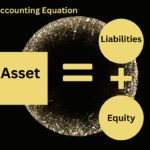Create a budget:
Make a detailed list of your income and expenses to see where your money is going. This will help you identify areas where you can cut back on spending and free up more money to pay down debt.
Prioritize debt:
Make a list of all your debts and prioritize them based on interest rates and the amount owed. Focus on paying off the debts with the highest interest rates first, while still making minimum payments on all other debts.
Negotiate with creditors:
If you are having trouble making payments, contact your creditors to see if they are willing to work out a payment plan or reduce your interest rates. They may be more willing to work with you than you think.
Consider debt consolidation:
If you have multiple debts with high-interest rates, consider consolidating them into one loan with a lower interest rate. This can simplify your payments and save you money in interest charges.
Build an emergency fund:
Having an emergency fund can help you avoid going into debt when unexpected expenses arise. Aim to save at least three to six months’ worth of living expenses.
Cut expenses:
Look for ways to cut back on your expenses, such as cooking at home instead of eating out, canceling subscriptions you don’t use, or shopping for cheaper alternatives.
Increase your income:
Consider taking on a side hustle or asking for a raise at work to increase your income. The extra money can be put towards paying down debt.
Stay motivated:
Debt repayment can be a long and difficult journey, so it’s important to stay motivated. Celebrate small successes along the way and remind yourself of your goals to stay on track.
Remember, debt management is about making smart choices with your money and being disciplined about paying off your debts. With time, patience, and persistence, you can achieve financial freedom and live a debt-free life.

